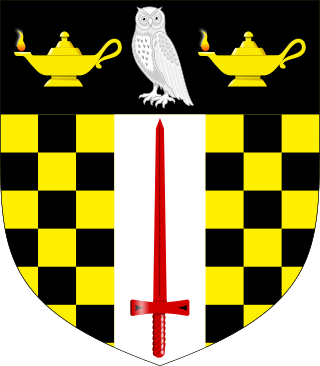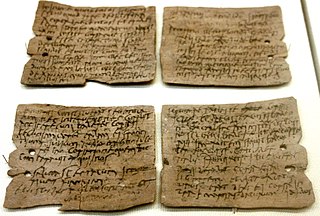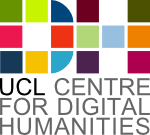
Jeremy Bentham was an English philosopher, jurist, and social reformer regarded as the founder of modern utilitarianism.
University College London, which operates as UCL, is a public research university in London, England. It is a member institution of the federal University of London, and is the second-largest university in the United Kingdom by total enrolment and the largest by postgraduate enrolment.

Birkbeck, University of London, is a public research university, located in Bloomsbury, London, England, and a member institution of the federal University of London. Established in 1823 as the London Mechanics' Institute by its founder, Sir George Birkbeck, and its supporters, Jeremy Bentham, J. C. Hobhouse and Henry Brougham, Birkbeck is one of the few universities to specialise in evening higher education in the United Kingdom.

Catherine Hall is a British academic. She is Emerita Professor of Modern British Social and Cultural History at University College London and chair of its digital scholarship project, the Centre for the Study of the Legacies of British Slavery. Her work as a feminist historian focuses on the 18th and 19th centuries, and the themes of gender, class, race and empire.

The Vindolanda tablets were, at the time of their discovery, the oldest surviving handwritten documents in Britain. They are a rich source of information about life on the northern frontier of Roman Britain. Written on fragments of thin, postcard-sized wooden leaf-tablets with carbon-based ink, the tablets date to the 1st and 2nd centuries AD. Although similar records on papyrus were known from elsewhere in the Roman Empire, wooden tablets with ink text had not been recovered until 1973, when archaeologist Robin Birley, his attention being drawn by student excavator Keith Liddell, discovered some at the site of Vindolanda, a Roman fort in northern England.

University College London (UCL) was founded on 11 February 1826, under the name London University, as a secular alternative to the strictly religious universities of Oxford and Cambridge. It was founded with the intention from the beginning of it being a university, not a college or institute. However its founders encountered strong opposition from the Church of England, the existing universities and the medical schools which prevented them from securing the Royal Charter under the title of "university" that would grant "London University" official recognition and allow it to award degrees. It was not until 1836, when the latter-day University of London was established, that it was legally recognised and granted the authority to submit students for the degree examinations of the University of London.

The Faculty of Arts and Humanities is one of the 11 constituent faculties of University College London (UCL). The current Executive Dean is Professor Stella Bruzzi, FBA. Ranked 5th in the Times Higher Education World University Rankings (2022), the Faculty of Arts & Humanities at UCL is recognised globally for both its teaching and research excellence.
Alan Keir Bowman, FBA is a British classicist and academic. He was Camden Professor of Ancient History at the University of Oxford from 2002 to 2010, and Principal of Brasenose College, Oxford, from 2011 to 2015.
Northeastern University – London, formerly New College of the Humanities, is a university in London, England. It was founded as a private college by the philosopher A. C. Grayling, who became its first Master. The college, which grants undergraduate and taught master's degrees, is owned by NCH at Northeastern Ltd., a subsidiary of Northeastern University, a private American research university based in Boston, Massachusetts, which acquired the college in February 2019. A year later, in February 2020, NCH at Northeastern Ltd. was granted its own taught degree awarding powers. The college became publicly funded in August 2020. The college specializes in the humanities, social sciences, and master's degrees at the intersection of the humanities and technology.

The European Association for Digital Humanities (EADH), formerly known as the Association for Literary and Linguistic Computing (ALLC), is a digital humanities organisation founded in London in 1973. Its purpose is to promote the advancement of education in the digital humanities through the development and use of computational methods in research and teaching in the Humanities and related disciplines, especially literary and linguistic computing. In 2005, the Association joined the Alliance of Digital Humanities Organizations (ADHO).

Transcribe Bentham is a crowdsourced manuscript transcription project, run by University College London's Bentham Project, in partnership with UCL Centre for Digital Humanities, UCL Library Services, UCL Learning and Media Services, the University of London Computer Centre, and the online community. Transcribe Bentham was launched under a twelve-month Arts and Humanities Research Council grant.
Margaret Jean Snowling is a British psychologist, and world-leading expert in language difficulties, including dyslexia. From 2012 to 2022 she was President of St John's College, Oxford and Professor in the Department of Experimental Psychology, University of Oxford. Snowling was appointed Commander of the Order of the British Empire (CBE) in 2016 for services to science and the understanding of dyslexia. She was born in South Shields.
The Department of Information Studies is a department of the UCL Faculty of Arts and Humanities.
Susan Hockey is an Emeritus Professor of Library and Information Studies at University College London. She has written about the history of digital humanities, the development of text analysis applications, electronic textual mark-up, teaching computing in the humanities, and the role of libraries in managing digital resources. In 2014, University College London created a Digital Humanities lecture series in her honour.
Robyn Anne Carston, is a linguist and academic, who specialises in pragmatics, semantics, and the philosophy of language. Since 2005, she has been Professor of Linguistics at University College London.
Susanne Küchler, FBA is a German anthropologist and academic, who specialises in material culture. Since 2006, she has been a professor at University College London. She previously worked at the University of East Anglia and the Johns Hopkins University.
Stella Bruzzi, FBA is an Italian-born British scholar of film and media studies and currently Dean of Arts and Humanities at University College London.
Janette Atkinson, is a British psychologist and academic, specialising in the human development of vision and visual cognition. She was Professor of Psychology at University College London from 1993: she is now emeritus professor. She was also co-director of the Visual Development Unit at the Department of Psychology, University College London and the Department of Experimental Psychology, University of Oxford. She frequently collaborated with her husband Oliver Braddick.
James Graham-Campbell, is a British archaeologist, medievalist, and academic, specialising in the Viking Age. He lectured at University College Dublin and University College London (UCL), rising to be Professor of Medieval Archaeology at UCL from 1991 to 2002: he is now professor emeritus.








